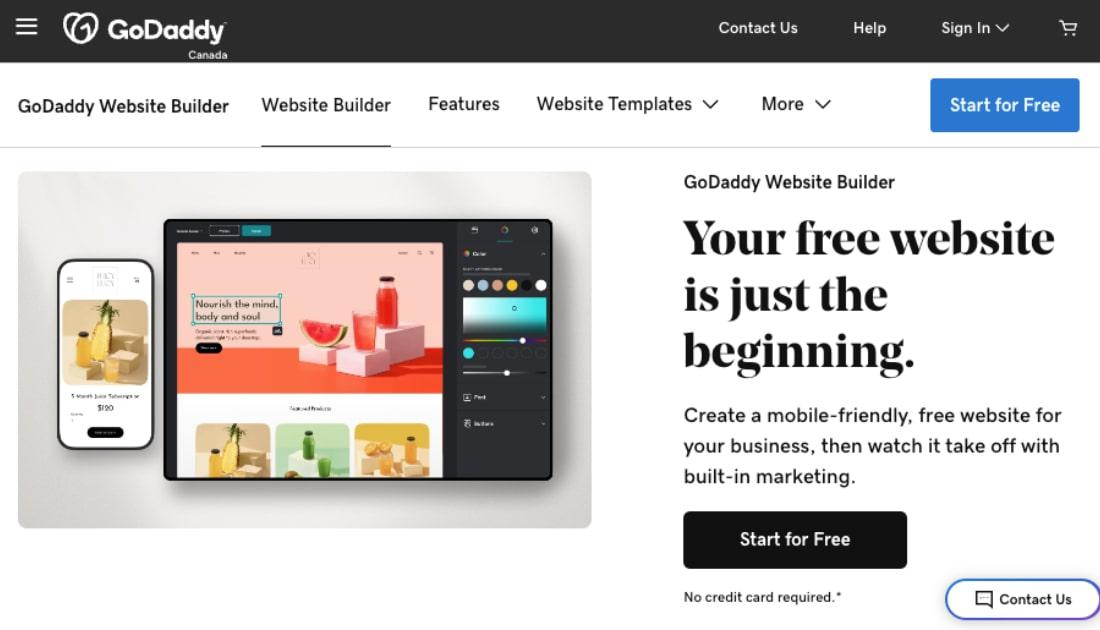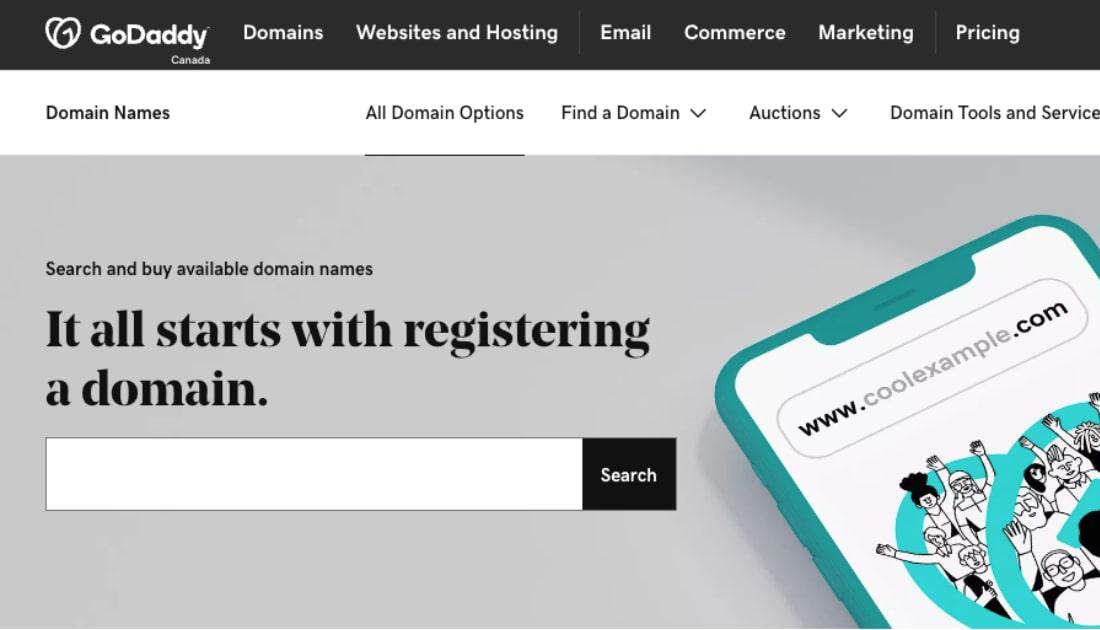Contrary to popular belief, marketing is not just about ads on television and billboards on the side of the highway. Business marketing is a research science and communications strategy that all businesses use to spread awareness.
Entrepreneurs often come up with ideas that respond to a need in the market. Unfortunately, most startups end up failing in the first few years.
Having a brilliant idea for a product or service isn’t enough. Neither is having a catchy name.
You could come up with an amazing name for your startup, but if no one knows it exists, what’s the point?
If you’re an entrepreneur launching a startup or small business and you’re not sure how to market your small business, keep on reading.
Editor’s note: A website is a powerful marketing tool for any business. Build one for yours using GoDaddy’s easy site builder. Try it for 30 days risk-free!
What is business marketing?

Business marketing is necessary for all types of business — those that sell products as well as businesses that offer services such as building maintenance, bookkeeping or shuttle services.
Before creating a marketing strategy for your startup, you’ll need to understand what it really means and where it actually begins.
Marketing is an aspect of business that demands:
- Research.
- An understanding of your target customer.
- Well thought-out strategies that will help you reach them.
Think about this: when large corporations launch small sub-brands, they do months and months of research and market testing to see if their concepts will succeed or fail.
As a startup, you most likely don’t have the same financial resources to test out your strategy. That’s why investing your time in early research is key.
As mentioned, most people believe that marketing starts after you create your product. But if you want to succeed, conducting market research beforehand is essential.
Who is your customer?
As mentioned, business marketing requires a lot of preliminary research. When you dive in, you will discover whom your product would appeal to, their demographic information and their purchasing behaviors. All of this information will help you in the next step when discussing the fundamentals of marketing.
The 4 pillars of business marketing

Before you can build a strategy for your startup, you want to consider the 4 P’s of marketing: product, price, place and promotion. These apply both to product and service marketing.
Product
Your product or service is the core of your business. When looking at your business plan, considering marketing during the product/service development stages is crucial.
Your idea is brilliant, but do people want it?
Does it fill a need or solve a problem? Ask yourself these questions and do the research to back it up. The inventor of the first lawnmower probably just wanted to cut his own grass, but then realized a lot of other people might want to as well and monetized it.
The way that you market your product includes the way it’s packaged/presented and the product variations for your different types of customers.
For example, razor brands will typically have different versions of similar razors to appeal to different target consumers. They’ll have both:
- Disposables (for travel or for lower-income consumers like teens and young adults).
- A higher-end version (for consumers with more disposable income and those who want something that will last longer).
All of these factors play into the final product and how you market your small business.
Price
Pricing your product does not come from guesstimating. It’s math (I know, you didn’t want to hear it, but it’s true).
Whether you’re launching a product or a service, everything costs money to produce. For services, you’ll need to look at the cost of rent for your shop, office or warehouse, as well as the expenses that it will take to keep it running, such as utilities. For products, rent matters as well, but also take into account costs for production, materials and employees. Also consider the scale at which you are starting.
You don’t want to undervalue your goods and end up bankrupt. But you also want to sell at competitive rates.
Find a happy medium that will not only cover business expenses, but entice your customers to purchase.
This is why preliminary research of your audience is so important. You don’t want to market a pricey product to an audience that either a) wouldn’t spend the extra dollars based on their purchasing habits or b) can’t afford it.
Place

You have your product/service and the price you’ll be selling it for, but where are you going to sell it?
Think back to your customers’ purchasing behaviors. Does your target audience shop online or are they the type who prefers touching and trying their purchases in a store before they buy? Find out where your customers look for similar or competitive products and see if this would be a good option for your startup.
For example, a lot of new tech and product startups often use crowdfunding platforms not only to raise money for production but to also promote their prototypes and create hype.
Promotion
Promoting your product or service also ties back to your preliminary research. Where can your customers be reached?
In today’s world, whether you have a brick-and-mortar store or solely sell your product through third-party retailers, you will need a website. A website is just as important for service marketing, since this is how people look for everything from tax accounting to car repair.
You can start by securing and buying your domain online with GoDaddy and using its online tools to promote your product or service.
A business marketing strategy can contribute to your startup’s success if you do it right.
But, hold on! A website is not enough. Depending on your resources and where your customers typically hang out online, it could also make sense to develop a social media strategy that includes a couple social media accounts where you share product updates, online content and news.
How to market your small business
To build a solid business marketing strategy, remember to do preliminary research to understand the current market, learn who your customers are and their behaviors. And last but not least plan around the 4 Ps.
With these elements in mind, you can beat the startup statistics and launch your business from zero to market hero!








